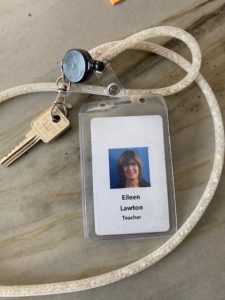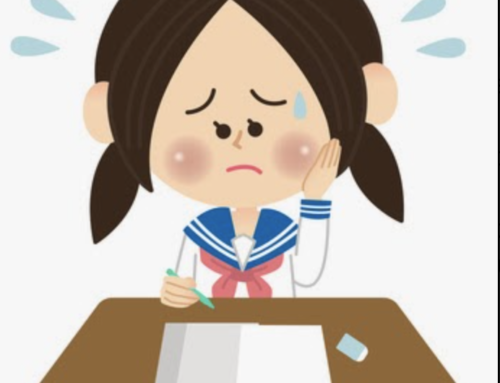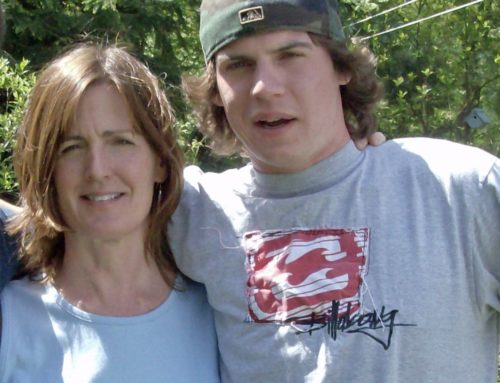Journalcalling #7: Why I Decided To Leave My Teaching Career

Journalcalling • September 8, 2020
 At first, I felt pretty righteous about suddenly opting to end my teaching career. “I staged a one teacher walk-out yesterday,” I jubilantly wrote in my journal. After 23 years of teaching high school English, I decided in the middle of July to retire. Now, as summer has rolled to a close, and my colleagues have re-entered their classrooms without me, I feel more like a quitter, as if I have abandoned my ship to swim safely ashore as it lurches in the swells of the sea.
At first, I felt pretty righteous about suddenly opting to end my teaching career. “I staged a one teacher walk-out yesterday,” I jubilantly wrote in my journal. After 23 years of teaching high school English, I decided in the middle of July to retire. Now, as summer has rolled to a close, and my colleagues have re-entered their classrooms without me, I feel more like a quitter, as if I have abandoned my ship to swim safely ashore as it lurches in the swells of the sea.
About a month before my decision, I had scoffed at the early retirement incentive offered at my school due to COVID. It would take more than that, I said. The dominoes then started to fall. The art, music and physical education teachers got laid off along with a few more beloved colleagues. All electives, including the journalism I had taught for 21 years, and the other classes kids loved that had them exploring the meaning of justice, designing and building award-winning parade floats, and learning how to strum a guitar were sliced from the curriculum.
A first guideline from the state said there would be 10 students per classroom spaced in desks six feet apart, then a follow-up said 20-24 desks in each room only three feet apart. All students would wear masks and face the front of the room. Teachers would also be masked and their desks would have large plastic shields for one-to-one conversations. Students will stay in the same classroom all day, and their teachers will travel to them.
I could not imagine any of this, and then I did. How would we communicate or breathe? I had not yet mastered how to exhale while masked without fogging up my glasses, and could not fathom wearing one all day while trying to teach. A number of students are difficult to hear and understand on a good day. Would my conversations with them be reduced to:
“Put your mask on, please.”
“Over your nose.”
“Move away from each other.”
“Six feet! Six feet!”
“I’m sorry, I can’t hear you.”
“Say it again?”
I told myself to buck up and get in there. I am a veteran and especially now, I am needed.
I became a teacher at 37 and at one time, I thought I would make 30 years. As the realities of one of the most satisfying and grueling professions in the world got real, I pared it down to 25, then suddenly I was done.
As the back-to-school news changed daily, my husband, who had been a strong proponent of “make it to 80%” — that magic number many teachers strive for to get the largest possible pension — was suddenly saying, “I don’t think I want you to go back.” Within a day, I had printed and filled out a retirement application.
Was I thinking clearly? We have been extraordinarily lucky during this chaotic and tragic time with both of our jobs remaining intact. Who would I be if I wasn’t a teacher? I would be giving up my career and my full-time salary during a major economic downturn — miles from 80% — and our house remodel was not yet finished. I like to travel three or four times a year to see my 3½ year-old granddaughter in Denver, and I enjoy buying gifts for family and friends. I also love to eat delicious meals at restaurants. What the heck was I doing?
My honest accounting:
I had lost some stamina. I still felt a joyful flutter as I climbed the schoolhouse stairs and opened my classroom door each morning eager to greet students and the day ahead. But too many times when the daily wave of exhaustion hit, I heard myself say, “Just two more years….” I did not want to be that teacher counting down the days to retirement. When COVID closed schools in March, I was way too happy not to have to rise to an alarm at 5 a.m. and make my 45-minute highway commute in the dark.
I turned 60 in the spring, and felt the years closing in. I want to spend more time with my parents who are three hours away, and my sweet grandchildren. I want to write more, and teach on my own outside of an institution with so many directives.
My body needs to heal. “Our bodies are constantly tensing up,” a teacher friend observed. It’s true. When we’re not in front of our students laying out the day’s lessons while fielding all manner of behaviors, inquiries and allegations, we are hunched over laptops planning and searching and figuring out how to use the newest app.
Already, the pain in my shoulder is lessening, and my neck no longer feels as tight. By the time I hit 55, I needed to book regular appointments with a team of specialists to keep me mobile in the classroom — massage therapist, chiropractor and at times a physical therapist. Some of my students actually flew through the air as they entered the room, and they all seemed to want my attention at the same time. “There’s only one of me, one of me,” I was often saying. It took a one-woman, full-court press to keep 20 of them engaged and on-task, and more and more, I was feeling ready for some time on the bench.
Many teachers have described the grit that it takes to do the job right, and it’s probably something those outside the profession will never truly understand — although many parents do seem to have a greater grasp after the remote learning experience.
It was easy to become a teacher but so much harder to be one. I switched in from a career as a newspaper reporter after I enjoyed running a high school reporter program. In 1997, I filled out a one-page application, paid $25 and got one of my friends to sign it saying I was a decent person. I was hired after my first interview, given a few English literature textbooks and placed in front of a classroom of students. Trembling, I addressed them standing close to my desk where I could keep checking the notes I had prepared the night before on Beowulf and The Canterbury Tales.
Reading through the first papers my students handed in, I thought, “What in the world am I supposed to do with these?” As a writer, I was deeply invested in helping them, but it took me years to figure out how. I soon enrolled in the master’s program that would give me my teaching legs, and went on to take courses every year that would add up to the equivalent of three master’s degrees.
I often dreamed of being one of those teachers with a large binder filled with a neatly arranged curriculum and accompanying handouts in plastic sheets, but I never got there. Every year as I learned more and tried to be better, I tossed plans and materials and revamped others — changing what I taught and how I taught it. I also spent considerable energy resisting the unrelenting and often deafening drumbeat to teach to a standardized test.
I’m sorry I slipped out without saying goodbye to my 9th graders, especially in a year that ended in poorly- attended online meetings. I’m hoping I can carry their smiles and epiphanies with me for a long while. In those moments when I saw them understand and apply what I was selling, it felt like a million shining lights had exploded in my chest.
I’ll carry the images of them working at their desks with heads bent to compose complex sentences that made their writing sing, and their inquisitive and grimacing faces during discussions as they challenged themselves to explain an author’s inferences and how certain themes may apply to their own lives. In those moments, maybe I lit their worlds, too, and it felt like such a gift.
I’ll miss my friends and colleagues who sustained me in the trenches — their cheerful hellos in the halls, their hugs, the high-fives on Fridays and the “We’ve got this,” as we stuffed sandwiches in our mouths and rushed back to our classrooms when the bell signaled our 20-minute lunch was over. Their wide-eyed humor and wisdom carried me through my toughest and most celebratory days. I am mourning the loss of being part of something so big.
A recent favorite unit to teach was the short stories of the late science fiction author Ray Bradbury — “The Veldt” and “There Will Come Soft Rains.” As I tried to figure out the way forward, I latched onto that great writer’s line that makes taking risks seem perfectly doable: “Go to the edge of the cliff and jump off,” he said. “Build your wings on the way down.”
As I unfurl, hoping for some feathers, I am full of admiration and gratitude and love for the teachers who have marched in to right that ship for their students. It was an honor to be among them.




